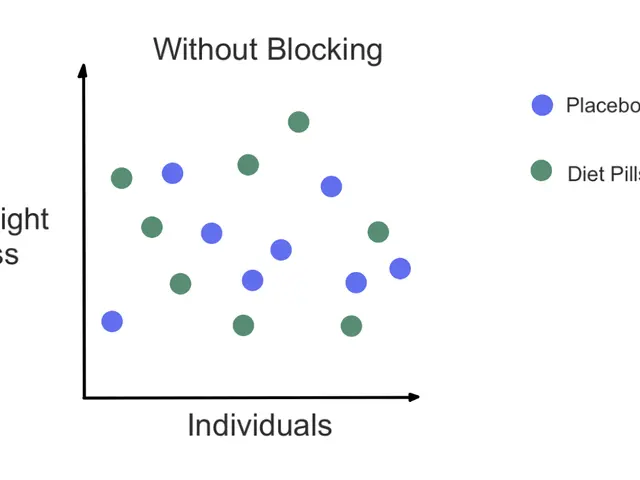Bodily impacts and implications of breast cancer: A guide to preparations
Breast cancer is a serious disease that affects one in eight women in their lifetime, and while it primarily impacts females, males can also be diagnosed with the condition. This article aims to provide an overview of the various ways breast cancer treatment can affect the body.
One of the most noticeable side effects of breast cancer treatment is hair loss, including hair on the scalp, eyebrows, and eyelashes. This hair loss is usually temporary but can be permanent for some individuals. Additionally, skin changes such as rash, dimpling, and puckering can occur as a result of treatment.
Breast cancer treatment can also compromise the immune system's balance, causing both beneficial anti-cancer effects and harmful autoimmune inflammation. Immunotherapy, a common treatment, can activate the immune system to target cancer cells but may also cause the immune system to attack healthy cells, leading to immune-related adverse events. These adverse effects may include skin rashes, endocrine system changes, colitis, flu-like symptoms, and in some cases severe inflammation or neurologic toxicity.
Immune checkpoint inhibitors, a type of immunotherapy, can cause inflammatory side effects due to immune system overstimulation. This necessitates careful monitoring and management. Moreover, immunotherapy may increase the risk of infection due to immune modulation.
Chemotherapy, a common treatment for breast cancer, can impair kidney function due to toxic effects of chemotherapeutic agents. Chemotherapy drugs such as doxorubicin can cause nephrotoxicity (kidney damage). This nephrotoxicity results from oxidative stress and inflammation triggered by reactive oxygen species and free radicals, leading to decreased renal function, electrolyte imbalance, and increased blood markers of kidney injury.
Breast cancer and its treatments can significantly affect a person's sex life and fertility. Menopausal symptoms, vaginal dryness, low libido, difficulty reaching orgasm, infertility, and changes to body image are common effects. Early diagnosis and treatment are crucial for managing these effects.
It's important to note that not all breast changes are cancerous. Some breast changes may be due to benign conditions such as fibrocystic breast disease or mastitis. Early symptoms of breast cancer can include a lump in the breast, changes in breast shape or size, nipple changes, and skin changes such as dimpling or puckering.
Lymphedema, a type of swelling caused by fluid buildup in the body's tissues, can occur after breast cancer treatment. This swelling can affect various parts of the body, including the arm, hand, breast, chest, shoulder, and the area on the back behind the armpit.
Cancer-related fatigue is a common symptom of breast cancer and its treatment. It can be caused by the body's immune response to cancer cells, the energy demands of cancer cells growing and multiplying, the side effects of cancer treatments, and the emotional and psychological toll of living with a cancer diagnosis.
Lastly, it's essential to monitor renal function during chemotherapy to avoid or manage nephrotoxicity. Early diagnosis and treatment are key to managing the effects of breast cancer on the body.
[1] American Cancer Society. (2021). Breast Cancer Treatment Side Effects. Retrieved from https://www.cancer.org/cancer/breast-cancer/treatment/side-effects/side-effects-of-breast-cancer-treatment.html [2] National Kidney Foundation. (2021). Chemotherapy and Kidney Health. Retrieved from https://www.kidney.org/atoz/content/chemotherapy-and-kidney-health [3] National Comprehensive Cancer Network. (2021). Immunotherapy for Breast Cancer. Retrieved from https://www.nccn.org/patients/guidelines/breast/html/immunotherapy.html [4] Cancer Research UK. (2021). Breast Cancer. Retrieved from https://www.cancerresearchuk.org/about-cancer/breast-cancer [5] National Cancer Institute. (2021). Immunotherapy: What It Is and How It Works. Retrieved from https://www.cancer.gov/publications/dictionaries/cancer-terms/def/immunotherapy
Read also:
- Impact of Alcohol Consumption During Pregnancy: Consequences and Further Details
- The cause behind increased urination after alcohol consumption is explained here.
- West Nile Virus found in Kentucky for the first time; residents advised to take protective measures
- Symptoms, Timeframe, and Recovery from Cocaine Detoxification







